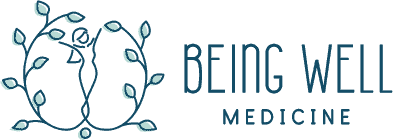Do you have PCOS? It’s quite possible, because Polycystic Ovary Syndrome (PCOS) affects millions of women and is the most common hormonal disorder in women of reproductive age. Despite being such a widespread condition, PCOS can be tricky to diagnose, and the precise cause of the disorder is still unknown. The main symptoms are infrequent or absent menstrual periods and androgenic (male hormone) symptoms such as acne, hair loss and excess facial or body hair. There may be small “cysts” in the ovaries consisting of multiple immature follicles that form a distinct pattern seen by ultrasound.
Is PCOS really a big deal? Yes, and here’s why…
Some patients don’t seem to mind missing periods or having a few stray hairs or breakouts. However, PCOS is a serious metabolic disorder which is highlighted by insulin disruption and inflammation. The excess insulin acts on the ovaries to increase testosterone and other male hormones which can shut down ovulation. The long-term effects of this process can be infertility, diabetes, heart disease and endometrial cancer. The good news is that many aspects of PCOS can be managed by lifestyle changes such as diet, exercise and stress reduction. Targeting things that reduce inflammation and balance blood sugar will improve overall health and also help with PCOS. In addition to dietary changes, there are certain herbs and supplements that may aid in regulating metabolism and balancing hormones.
Most of my patients with PCOS have tried some medical intervention, usually birth control pills (to help shed the menstrual lining that builds up in the absence of a period), spironolactone (to help with acne) and Metformin to help regulate insulin levels. These pharmaceutical methods work well for their intended purpose, but they do not get to the root cause. For example, a “period” on birth control is not really a true menstrual period because the pill prevents ovulation. The lack of ovulation was the problem in the beginning…and the birth control pill is not a fix for that. Also, once a woman who has been on oral contraceptives for years decides to stop and try to start a family, the underlying issues of PCOS are still there unless she has worked to heal the root causes of insulin disruption and inflammation.
Pregnancy complications
Pregnant women with PCOS may have higher risks of certain pregnancy complications such as gestational diabetes and pre-eclampsia (an increase in blood pressure in late pregnancy that can become life-threatening). During pregnancy, it is very important to continue to address those same factors of insulin disruption and inflammation that we discussed earlier.
PCOS–could it be linked to gut health?
More good news about PCOS—recently, researchers have theorized that the gut microbiome may influence the development of PCOS. Why is this good news? Well, the gut microbiome is the vast collection of microorganisms (some “good” and some “bad”) that live in the digestive tract. These microorganisms feed on the undigested parts of our food. They love fiber, for example—just one reason why vegetables are healthy foods. How amazing that we could influence our hormonal balance by improving diet and digestion!
One of the main reasons why holistic approaches such as functional medicine and Traditional Chinese Medicine (TCM) work well for hormonal and metabolic imbalances such as PCOS is the emphasis on looking at why these body systems have become imbalanced. Correcting the underlying causes is the most effective approach for creating overall good health in the long run.
Another culprit in PCOS–toxic chemicals in body care products
Another possible root cause of hormonal imbalance can be environmental toxins. According to the Environmental Working Group, these can be as common as parabens in body lotion that is applied to skin every day, but which act as hormone disruptors. Added fragrance might make a product smell nice, but synthetic fragrances are another class of major hormone disruptors. A proactive step that anyone can take for hormonal health is to start phasing out unnecessary chemicals in our hair and body care, makeup and household products.
A customized functional medicine combo treatment can help
In my healthcare practice, I use a combined approach of functional medicine and Chinese herbal medicine when working with women who have been diagnosed with PCOS and women who have irregular periods for other reasons. (Another common reason for irregular or absent periods, hypothalamic amenorrhea, will be the subject of a future blog post.) These may be common conditions, but each woman is unique and deserves a detailed look into what is going on and how to best treat multiple causes as well as symptoms.
Springtime is coming soon in Florida, and it’s a great time to make positive changes in your health and wellbeing. Ask me about how we can work together via telemedicine to reach your health goals. Contact me for a free 15-minute consultation to see if this type of treatment is a good fit for your situation.

